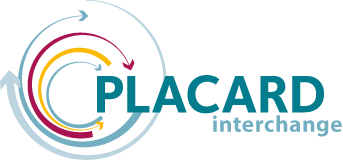Vulnerability to climate change risks is a result of the combination of both climatic and socioeconomic conditions. How can we deal with these risks and reduce future vulnerability? And not only now, but also in the future: the risk of weather-related disasters will not remain the same but will be altered by climate change! Furthermore, we must not only explore climate change threats but also the implications of socioeconomic development on future vulnerability. Our session at ECCA 2017 will explore megatrends, wildcards and surprises.
Climate modellers have worked hard in the past few decades to provide more and more precise long-term climate projections. For many users this suggests higher accuracy, but these are still projections based on scenarios with many uncertainties.
Much less has been done to develop scenarios for future socioeconomic conditions. These are equally important for future risks. How will income differences develop? How will ageing affect vulnerability? Will health inequalities decrease? Will everyone have access to higher education? Will warning systems be efficient? Will urban planning be climate hazard-proof?
The scientific community is trying to answer these questions through the use of a specific set of socioeconomic scenarios, but these fall short in picturing the wide range of potential futures: many features and unexpected events are difficult to envision and model. We argue that this quantitative analysis is useful, but also insufficient to capture the full spectrum of possible futures that is relevant for climate and disaster risk response. Let us elaborate this view.
A wider set of foresight approaches, based on creative and collaborative thinking, should be used to enhance these existing socioeconomic scenarios. While model-based scenarios are mainly developed by experts, other foresight methods allow for the involvement of a wide group of stakeholders and their experiences, wisdom and creativity. Such approaches enable the inclusion of wildcards and to consider surprise events, for example, who could have predicted the outcome of some recent presidential elections? In brief, it allows thinking outside of the box and complementing traditional IPCC-like quantitative modelling exercises.
The Paris Agreement made at UNFCCC COP21 and the Sendai Framework for Disaster Risk Reduction (SFDRR) provide the political context for the proposed foresight work – they emphasise the need to support long-term risk and response analyses.
The role of foresight. Redrawn from JRC For-LEARN.

We designed this session to explore the potential of different foresight approaches to strengthen climate change adaptation (CCA) and disaster risk reduction (DRR) in terms of science, policy, and practice as well as to investigate implications of the global agreements for European, national, and local action. In this context, this session will:
- Explore the potential role of foresight to inform and connect the implementation of the UNFCCC adaptation and SFDRR mechanisms;
- Identify relevant long-term trends and socioeconomic developments which would have significant implications for DRR and CCA;
- Explore the needs and priorities of CCA, DRR, sustainable development, and other relevant communities with respect to foresight approaches.
After a short introduction, the session will begin with a plenary presentation about the implications of (global) megatrends and surprise events for CCA and DRR. A second plenary presentation will scrutinise the utility of back-casting foresight methods to design future-proof and climate resilient infrastructures at the local scale. The session then moves to a world café setting with an interactive discussion around three pragmatic reflections:
- What are current examples where foresight was used to develop joint CCA-DRR methods and tools?
- What would a good foresight-driven method that joins CCA-DRR look like?
- How can foresight support identification of future research priorities in both CCA and DRR?
We look forward to seeing you in Glasgow!


